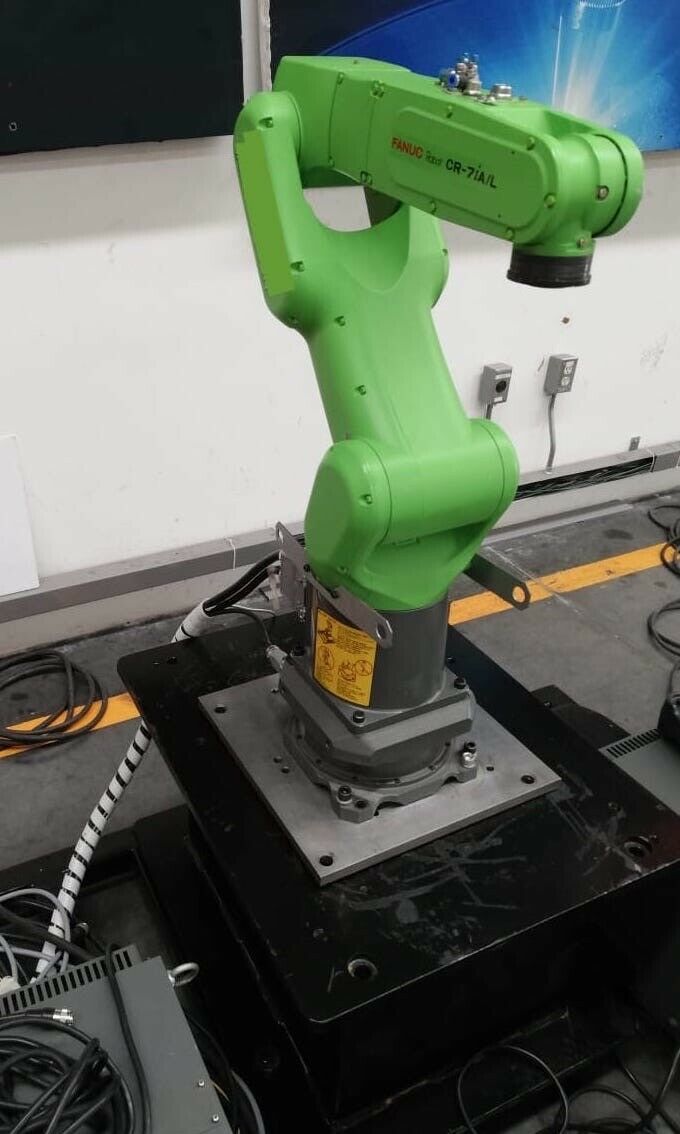Collaborative robots have been one of the biggest robot trends in 2020. Even though cobots are considered to be new-age robots, they have been around since the early 2000s. Cobots differ from traditional industrial robots in that they are designed to interact and work together with humans. They can share the same physical space as employees without any safety risks. Cobots feature enhanced sensors, rounded edges, and no pinch points allowing for safe robot and human interactions. For many manufacturers cobots have been a welcome addition as they are more affordable and can automate repetitive, tedious, and precision driven tasks. Cobots support workers helping to increase productivity, reduce cycle times, and reduce errors. Instead of directly replacing employees, cobots add value to their work to make workers more efficient.
Many of the top robotic manufacturers in the world have developed cobots. FANUC’s CR series features the CR-15ia with a soft exterior for extra collision protection. KUKA who was the first to develop a cobot, manufactures the lbr iiwa 14-R820. While Universal exclusively produces collaborative robots, including the UR5.
The use of cobots is expected to continue to grow as we move through this new decade. Some of the top industries that are already incorporating cobots into their manufacturing include:
- • Automotive - Automotive manufacturers including Ford and BMW have integrated cobots into their production lines. Cobots are being used to assist workers with lifting heavy parts, delicate finishing applications, and precision tasks such as riveting. Cobots ease the workload from employees, allowing them to focus on more critical thinking tasks.
- • Medical - Medical device manufacturers are also taking advantage of automating with collaborative robots. Medical devices often involve working with delicate and intricate parts requiring great precision, which is ideal for cobot automation. Cobots in the medical device industry assist workers with injection molding, trimming, and automated part transfer applications.
- • Electronics - In the electronics industry cobots are being deployed for automated inspection, automated dispensing, and robotic assembly applications. Many of the components involved with the production of electronic devices are delicate and small, making it difficult for human handling. However, incorporating a Universal UR10 for electronic production solves these issues. The easy programming of cobots allows them to quickly adapt to changes, which is important with the high product turnover of the electronics industry.
- • Food - When you think of industries for robots, the food industry is probably not on your list. However, the development of cleanroom and food grade robots has expanded robotic automation into food processing. Cobots are also being deployed by food manufacturers for automated packaging and robotic palletizing applications.
- • Metals - Foundry robots like the ABB 4400, have been used to automate applications in the metals industry for years. Now these articulated robots are getting some extra assistance with cobots. Cobots are being used in the metals industry for secondary tasks including finishing and automated machine tending.
- • Warehousing - Cobots can increase productivity by up to 85%, which is why they are being used to collaborate with workers for time sensitive processes in the warehousing industry. Product selection, packaging, and palletizing applications are being automated by cobots in many logistics companies around the world.
